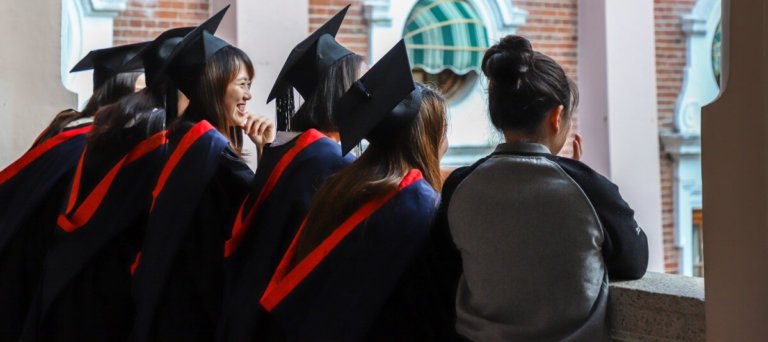
Rankings play an influential role for any prospective student choosing a university. There are many, each using a different set of metrics, from future average wages to faculty publication citation counts and even institution reputation.
Some industry ranking bodies combine these elements to produce a list of ‘the best of’, – big brand names in this category include Times Higher Education, QS, US News and Shanghai Rankings. While they hold some useful information, when choosing a university, potential students cannot rely on them solely – not even with a very critical eye in interpreting these rankings.
Rankings may present us with easy-to-use, organised information. For the stressed and anxious high school leaver, they can seem deceptively truthful and useful. The higher the ranking, the logic states, the better the college must be and vice versa. The reality is they can be meaningless at best in telling us what sort of learning experiences we will get when choosing a certain university of college.
There are many better ways to assess an institution. Here are three more meaningful metrics to use when choosing a college, according to research:
Find the ‘right fit’
Researchers at Stanford found that going to a selective college has no significant influence on student learning, future job satisfaction or well-being. There is a “modest relationship” between financial benefits and going to a selective college, but this mostly applies to first-generation and other under served students.
What truly mattered was how much “engagement” one got from college, in class and out. “Colleges that provide ample opportunities for students to deeply engage in learning and campus community may offer the key to positive outcomes after college,” said the report .

When choosing a university, find one with the best potential to form strong relationships, rather than one that just demonstrates high rankings.. Source: Shutterstock
Search for institutions that offer academic, civic and social opportunities. If academic engagement is what you desire, search for ones with internship opportunities or access to cutting-edge researchers. If you’d like a cultural education, choose one with a diverse student body or a track record of successful study abroad exchanges.
“Rather than choosing a school based primarily on a flawed scoring system, students should ask whether they will be engaged at the college in ways that will allow them to form strong relationships with professors and mentors, apply their learning via internships and long-term projects, and find a sense of community,” suggested the report.
Passionate professors > Rankings
The Gallup Alumni Survey, using rigorous empirical research, promises a completely new way to measure the outcomes of a college education. It assesses whether college graduates are engaged at work, whether they’re working in their field of choice and how far they’ve climbed. Most importantly, it measures “well-being” in terms of community, finance and health.

Passionate professors will have a bigger impact on your university experience, regardless of what any rankings say. Source: Shutterstock
It found that graduates who report workplace engagement and personal well-being have the “Big Six” undergraduate experiences:
- I had at least one professor at [institution] who made me excited about learning.
- My professors at [institution] cared about me as a person.
- I had a mentor who encouraged me to pursue my goals and dreams.
- I worked on a project that took a semester or more to complete.
- I had an internship or job that allowed me to apply what I was learning in the classroom.
- I was extremely active in extracurricular activities and organisations while I attended [institution].
Institutions that can deliver the above span large and wide, from big research universities to religiously-affiliated colleges and professionally-focused schools.
A different kind of college tour
Students are often advised to go on guided campus tours. This is where colleges claim you’ll get a feel of the place and see the perks of each particular campus.

Skip the traditional campus tour and rankings. Source: Shuttestock
Research in psychology and behavioral economics, however, suggest that it’s better to skip the tour. The reason shows that such tours are counter-intuitive: They may hinder students’ ability to pick a college that will further their interests and goals.
It boils down to the inability of our present selves making good decisions for our future selves. The current self, which is making the decision on where to attend college, believes we are good at making decisions for the self experiencing the outcome of this decision in the future. But researchers from Harvard and the University of Virginia argue this is a fallacy.
Our present selves rely on imagination, not experience in deciding which college will give us the best outcome. Our imaginations are biased towards the here and now, making whatever one sees during a campus tour inevitably stand out and have a disproportionate effect on our decision-making.
A better alternative is to seek the advice of current students and recent graduates. Asking them about their goals and how their actual experience lived up to their expectations is a much better predictor of our future in the same course and subject. Try to ask questions along these lines: “Why did you choose College A/Course X?” “Are you satisfied with your choice or would you change it?” “Do you think someone like me would be satisfied with College A/Course X?”
That’s all, folks. Good luck in your search!
Liked this? Then you’ll love…
Study finds that university rankings don’t really matter to international students
Latest World Reputation Rankings reveal that younger universities are on the rise







